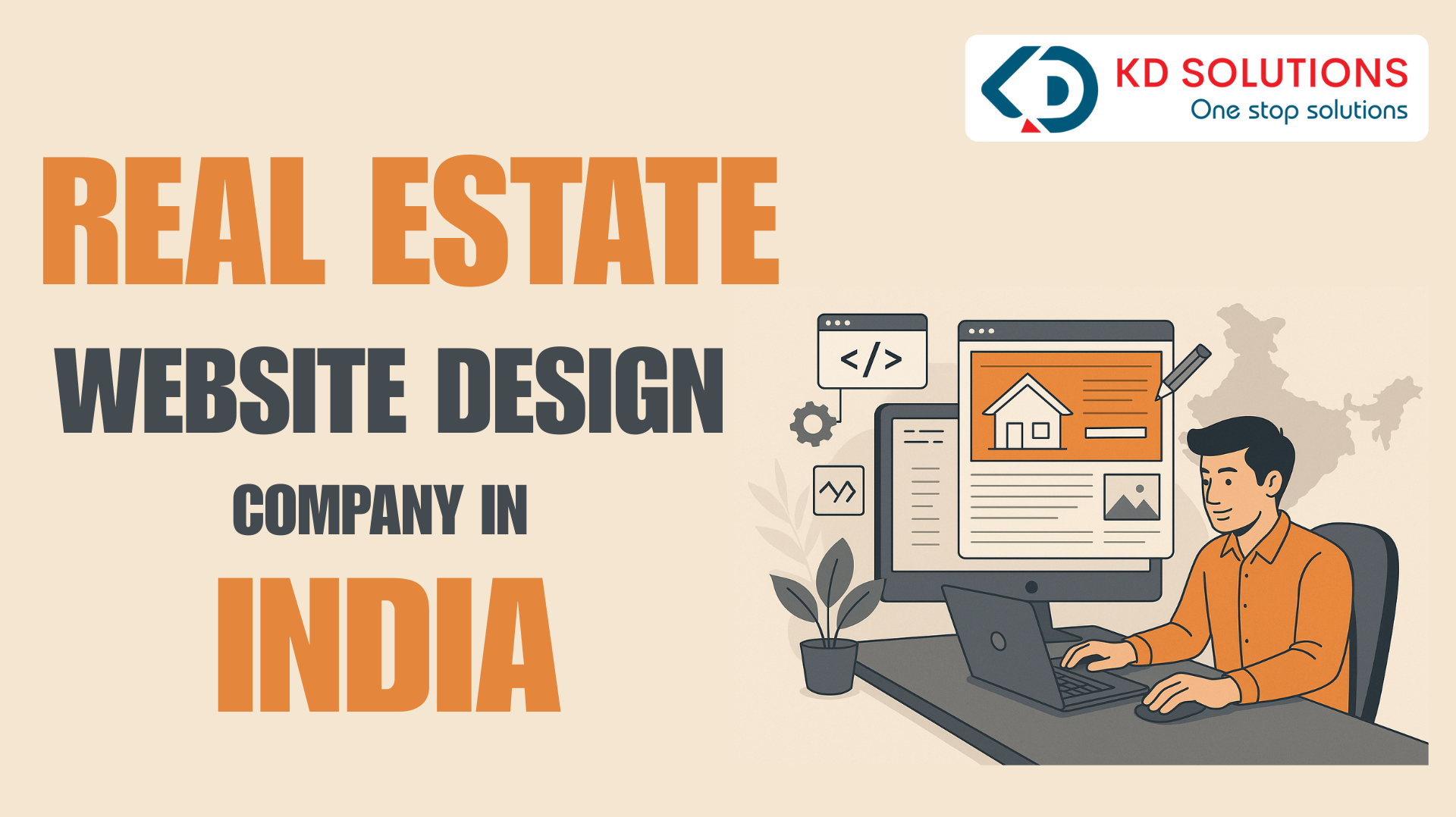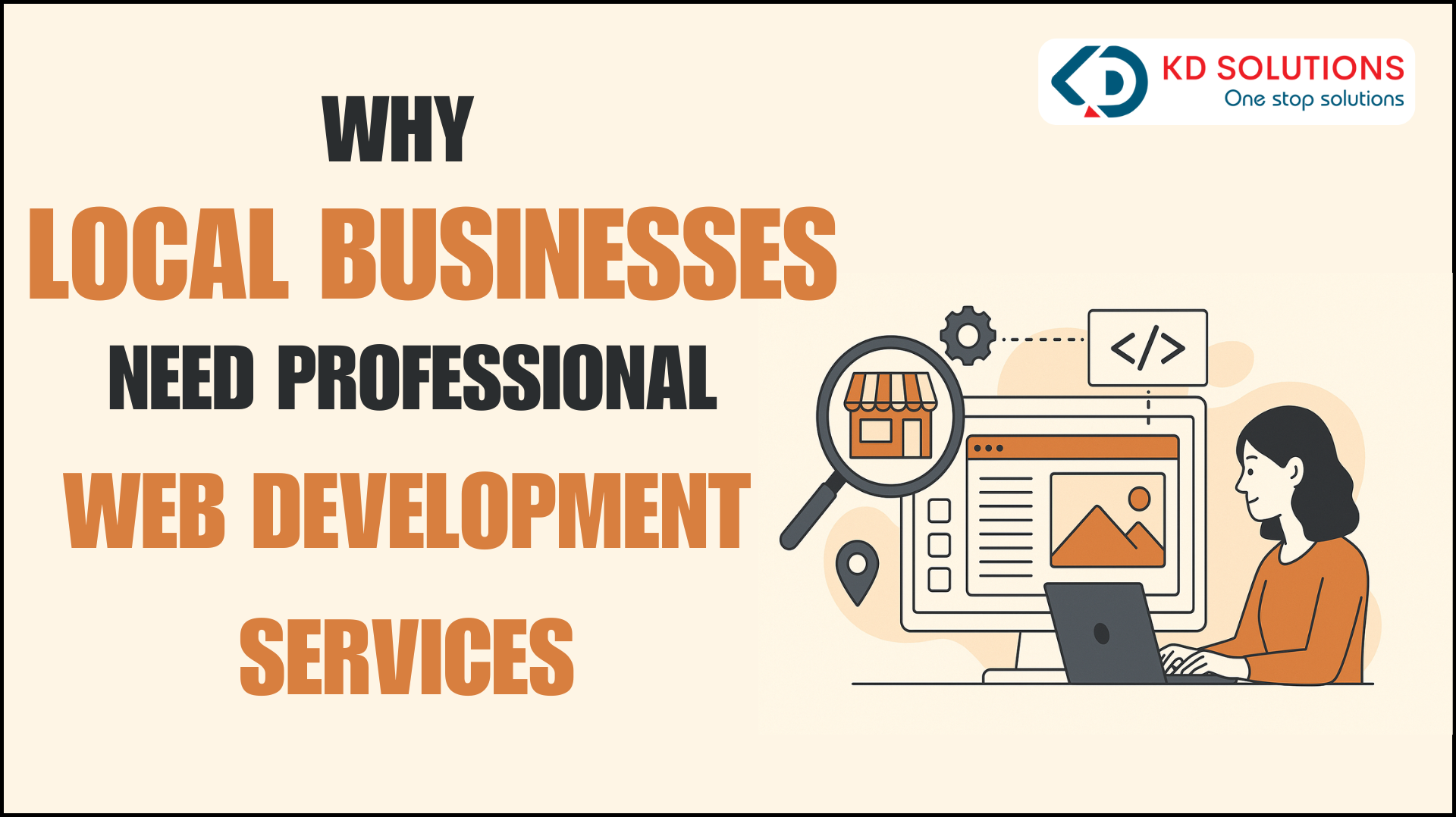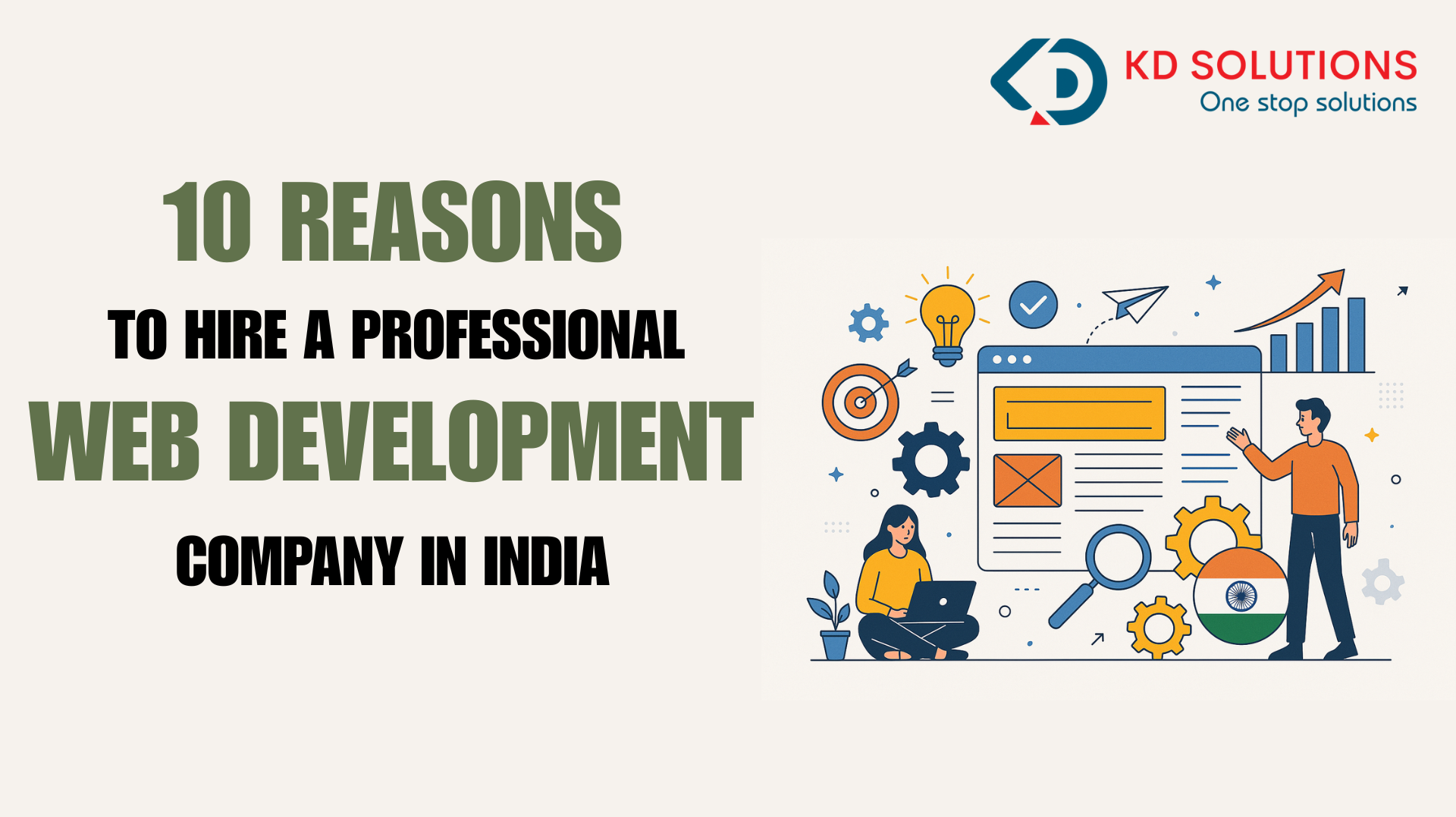In today’s digital-first world, your real estate website is your most powerful marketing tool. Whether you’re a real estate agency, property consultant, or a real estate builder, your website serves as the first point of contact for potential buyers and investors. A well-designed website not only showcases your listings but builds trust, boosts visibility, and enhances user engagement. With the growing demand for online property browsing and virtual tours, choosing the best real estate website design company in India is more important than ever.
But with hundreds of design agencies claiming to be the best, how do you make the right choice? Let’s explore the key factors you should consider while selecting a real estate website design company that understands your business, caters to your goals, and delivers results.
Understand Your Goals and Audience
Before you even begin to evaluate design agencies, it’s crucial to understand your own goals. Are you focused on showcasing residential or commercial properties? Do you target local buyers or NRIs? Are you looking to integrate features like property filtering, location-based search, mortgage calculators, or virtual tours? Clarifying these goals will help you choose a company that aligns its design and development strategy accordingly.
A good website design partner will ask you these questions before starting. If they don’t, it’s a red flag—they might be offering one-size-fits-all solutions that won’t help your brand stand out.
Evaluate Their Industry Experience
Not all web design companies have experience in the real estate industry. Choosing an agency that has worked with other real estate brands gives you an edge. They understand industry-specific challenges like managing multiple listings, integrating with property management systems, displaying location-based properties, and making the user journey intuitive and conversion-driven.
An experienced real estate website design company knows how to optimize a site for both search engines and end users. From designing attention-grabbing CTAs to incorporating high-resolution visuals and site speed optimization, their domain experience will shine through in the website performance.
Review Their Portfolio and Case Studies
A company’s past work is the best indicator of what they can deliver. Take time to go through their portfolio. Do their websites look modern and professional? Are they mobile responsive? Do they have features that matter to real estate businesses like property search, map integration, neighborhood data, or booking forms?
Also, explore their case studies. These offer insights into their thought process, design challenges, and solutions provided. Check whether the websites they’ve built have improved the clients’ online presence, lead generation, or sales. You should be able to visualize what your own site might look like with their help.
Assess Their Design and User Experience Capabilities
A real estate website should not only look appealing but also offer excellent user experience (UX). Users should be able to navigate effortlessly, explore properties by categories, and contact your team easily. If the design is confusing or cluttered, potential clients will leave in seconds.
Pay attention to the design quality of the agency’s own website as well. If their site is outdated or lacks responsiveness, that’s a warning sign. The best companies will prioritize clear visual hierarchy, fast-loading pages, mobile optimization, easy-to-use search filters, and call-to-actions that drive engagement.
Ensure Customization, Not Templates
Your business is unique—and your website should reflect that. Many low-cost agencies use pre-built templates with minimal customization, which may look generic and fail to represent your brand’s identity.
Top-tier website design companies build custom websites tailored to your branding, business goals, and user expectations. They will spend time understanding your real estate niche, logo, color scheme, tone of voice, and preferred features to deliver a site that’s distinctly yours.
Ask your shortlisted agency if they offer custom design or if they work with themes/templates. A fully customized site may cost a little more but gives you better brand value and long-term scalability.
Inquire About SEO and Digital Marketing Integration
A beautiful website without traffic is like a billboard in the desert. SEO (Search Engine Optimization) is a critical factor in real estate website success. The company you choose should offer basic SEO-friendly features like clean code, meta tag integration, optimized page speed, mobile responsiveness, and sitemap submission.
Even better if they offer complete digital marketing solutions like Google Ads, social media marketing, and content creation to drive traffic to your new website.
KD Solutions, for example, not only builds top-quality real estate websites but also provides SEO and lead generation services tailored to the real estate industry, ensuring you get both visibility and conversions.
Test Their Communication and Support
Throughout your website development journey, you’ll need constant updates and discussions. A responsive, professional, and friendly communication process is essential.
How do they handle queries? Do they provide a dedicated project manager or point of contact? Are they transparent about timelines and delays? Good communication avoids misunderstandings and keeps your project on track.
Post-launch support is equally important. Choose a company that offers maintenance services, troubleshooting, and technical upgrades. Websites often need regular updates to fix bugs, add features, or stay secure.
Analyze Technical Capabilities
Real estate websites are more complex than basic business websites. You’ll likely need features like:
- Advanced property search filters
- Google Maps integration
- CRM system integration
- Property submission for agents
- Calendar booking for site visits
- Payment gateway integration for booking fees
- Live chat or WhatsApp integration
Ensure the company you hire has strong backend development capabilities to build these features. Ask them what tech stack they use. PHP with Laravel, React, WordPress with custom plugins, or Node.js are all viable options depending on your needs.
Also, make sure they follow modern coding standards, offer mobile-first design, and ensure website security with SSL and data protection features.
Clarify Timeline and Budget Transparency
When choosing a website design partner, be clear about your budget—but also realistic. While cost is important, avoid choosing the cheapest option blindly. A low-budget agency may cut corners, miss deadlines, or compromise on design quality.
Request a detailed proposal including timeline, cost breakdown, payment schedule, and features offered. Ensure there are no hidden charges. A professional company will give you everything in writing and commit to deadlines. They’ll also help you prioritize features if you have budget constraints.
Prioritize Scalability and CMS Ease
Your real estate business will grow—and your website should grow with you. Whether it’s adding new properties, launching new branches, or publishing market insights, your site should be flexible and scalable.
Choose a company that builds websites with content management systems (CMS) that are easy to use. WordPress, for instance, is a great choice for many real estate businesses because it allows non-technical users to manage listings, blogs, and content with ease.
Also, check if the company offers CMS training or documentation so your in-house team can handle basic tasks without always depending on developers.
Ask for Testimonials and References
Client testimonials are a great way to gauge a company’s reputation. Look for reviews on platforms like Google, Clutch, or their own website. Don’t hesitate to ask the agency for client references—you can talk to their previous clients to learn about their experiences.
Were they happy with the final website? Did the company meet deadlines? Was post-launch support reliable? Real feedback will give you confidence and clarity.
KD Solutions – Best Real Estate Website Design Company in India
If you’re looking for a trusted, experienced, and result-driven web design company for your real estate business, KD Solutions is the perfect partner. Based in Ahmedabad, KD Solutions has helped several real estate brands across India build high-performing, SEO-friendly websites that convert visitors into leads.
What sets KD Solutions apart is their industry-specific approach. They understand the nuances of real estate buyer journeys, agent listing models, CRM integrations, and digital marketing for lead generation. From custom design and intuitive UX to powerful backend features and real-time support, KD Solutions ensures your website becomes your strongest sales tool.
Their team includes seasoned designers, developers, and marketers who work collaboratively to deliver tailored websites that not only look great but also perform exceptionally well on Google and other search engines.
Whether you’re a property developer, a real estate consultant, or a brokerage firm, KD Solutions can help you establish a compelling online presence and dominate your market. Reach out today to discuss your real estate website needs.
Final Thoughts
Choosing the best real estate website design company in India requires careful evaluation, not just of design skills but of industry experience, technical capability, communication, and long-term support. A powerful real estate website is more than just a digital brochure—it’s your primary sales engine.
By partnering with the right web design agency, you can ensure your business stands out in a competitive marketplace, builds trust with prospective clients, and drives qualified leads 24/7.
So take your time, ask the right questions, and choose a company that not only understands the art of design but the science of real estate success. Whether you’re launching your first real estate website or planning a redesign, make sure your digital foundation is as strong as the properties you sell.
FAQs
A real estate-specific website design company understands industry needs like property listing integration, map search, agent profiles, and booking systems. Their experience ensures your site functions effectively for buyers and sellers and is optimized for lead generation.
Essential features include advanced property search filters, mobile responsiveness, Google Maps integration, listing management, high-quality images, contact forms, CRM integration, live chat, and SEO optimization. These features improve user experience and boost conversions.
A simple real estate website may take 2–4 weeks, while a fully customized platform with advanced features can take 6–12 weeks or more. Timelines also depend on content availability, feedback speed, and development scope.
Yes, if your website is built on a content management system (like WordPress), you can easily manage and update property listings without technical help. Ensure your developer provides training or documentation.
SEO helps your website rank higher on Google, bringing organic traffic from people searching for properties in your area. Local SEO, keyword optimization, fast-loading pages, and mobile responsiveness are all key to improving visibility and lead generation.
KD Solutions combines industry expertise, modern design, SEO, and marketing strategies to build real estate websites that convert. Their custom approach, technical capabilities, and excellent support make them a trusted partner for real estate brands across India.
Yes. A website is only effective when people can find it. Digital marketing services like Google Ads, social media marketing, and SEO are crucial to driving traffic, building awareness, and generating qualified leads.
Absolutely. Most modern real estate websites integrate WhatsApp, Messenger, or live chat support to help buyers instantly connect with agents and improve response rates.
If you hire a professional agency like KD Solutions, your website will be fully responsive—meaning it will work perfectly on all devices including smartphones and tablets, which is critical since many users browse properties on mobile.






